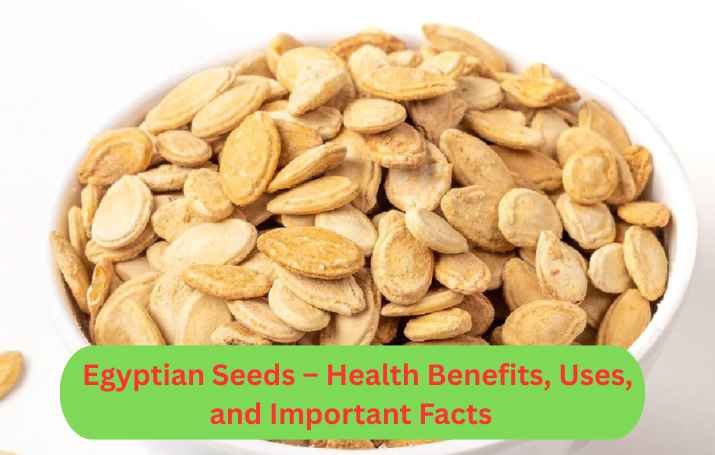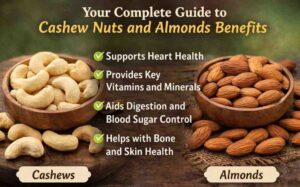
Egyptian Seeds – Health Benefits, Uses, and Important Facts

Introduction
In Egypt, seeds like sesame, black cumin, and fenugreek have been important for many generations. Not only were these seeds used to make food, but people also believed they could heal. People in Egypt and the nearby areas have used these natural materials for both cooking and everyday health problems.
It doesn’t matter if you eat roasted sesame seeds, black cumin with honey, or fenugreek leaves soaked in warm water. Each seed has a long history of use. They are simple to add to food, full of nutrients, and still respected for the health benefits they have been known to have for a long time. In this primenuts blogs we will talk about Egyptian Seeds Health Benefits, Uses, and Important Facts.
What Are Egyptian Seeds?
“Egyptian seeds” typically refer to a variety of seeds native to or commonly grown in Egypt. Some of the most widely known and consumed Egyptian seeds include:
- Black Seeds (Nigella sativa)
- Fenugreek Seeds (Trigonella foenum-graecum)
- Sesame Seeds (Sesamum indicum)
- Flaxseeds (Linum usitatissimum)
- Coriander Seeds (Coriandrum sativum)
Each of these seeds carries distinct health-promoting compounds and has a wide range of culinary and medicinal uses.
1. Black Seeds (Nigella sativa)
Health Benefits:
- Immune Support: Contains thymoquinone, a powerful antioxidant and anti-inflammatory compound.
- Digestive Aid: Helps with indigestion, bloating, and gas.
- Anti-inflammatory: Known for reducing joint pain and inflammation.
- Blood Sugar Control: Some studies suggest it helps regulate blood sugar levels.
Common Uses:
- Consumed raw or lightly toasted.
- Ground into powder and mixed with honey or oil.
- Used in herbal teas or taken as an oil supplement.
Key Fact: Black seed is famously referred to in the Middle East as “the seed that cures everything but death.”
2. Fenugreek Seeds
Health Benefits:
- Supports Lactation: Widely used by nursing mothers to boost milk production.
- Controls Blood Sugar: Rich in soluble fibre, fenugreek helps slow down carbohydrate digestion.
- Improves Digestion: Acts as a natural remedy for constipation and upset stomach.
- Anti-Inflammatory: Contains compounds that may help with arthritis symptoms.
Common Uses:
- Often soaked overnight and consumed in the morning.
- Added to curries, spice blends, or teas.
- Ground and used in pickles or as a seasoning in Egyptian cuisine.
Key Fact: Fenugreek seeds have a bitter taste but mellow down when soaked or cooked.
3. Sesame Seeds
Health Benefits:
- Bone Health: Rich in calcium, magnesium, and phosphorus.
- Heart Health: Contains healthy fats and lignans that support cholesterol management.
- Antioxidant Support: High in vitamin E and selenium.
- Skin and Hair Care: Often used in traditional oils for improving skin texture and scalp health.
Common Uses:
- Used in tahini, a paste made from ground sesame seeds.
- Sprinkled on bread, salads, and baked goods.
- Toasted and added to spice mixes like dukkah or za’atar.
Key Fact: Sesame seeds are one of the oldest known oilseed crops, with over 3,000 years of recorded cultivation.
4. Flaxseeds
Health Benefits:
- Rich in Omega-3s: Especially alpha-linolenic acid (ALA), beneficial for heart and brain health.
- Supports Digestion: High in soluble and insoluble fibre.
- Hormonal Balance: Contains lignans, plant compounds that may support hormonal health.
- Weight Management: Helps keep you full and stabilizes blood sugar.
Common Uses:
- Ground flaxseed is added to smoothies, oatmeal, or yogurt.
- Used in baking for gluten-free or fibre-rich recipes.
- Can be soaked in water to form a gel used as a vegan egg substitute.
Key Fact: Whole flaxseeds pass through the digestive tract largely undigested—grinding them improves nutrient absorption.
5. Coriander Seeds
Health Benefits:
- Improves Digestion: Aids in relieving gas, indigestion, and bloating.
- Blood Sugar Regulation: Shown to support better glucose metabolism.
- Rich in Antioxidants: Contains essential oils that have antimicrobial properties.
- Supports Liver Function: Traditionally used to cleanse the liver and reduce toxicity.
Common Uses:
- Dry-roasted and used in spice blends.
- Boiled in water and consumed as an herbal tea.
- Ground into curry powders or masala mixes.
Key Fact: In Egyptian and Middle Eastern cuisine, coriander is often paired with garlic to flavour vegetables and meat.
How to Store Egyptian Seeds Properly?
- Store seeds in airtight containers to protect them from moisture.
- Keep in a cool, dark place to prevent rancidity, especially for oil-rich seeds like flax and sesame.
- Whole seeds generally last 6–12 months, while ground seeds should be used within a few weeks.
Final Thoughts
Egyptian seeds not only serve as staple foods but also offer a wealth of health benefits that have been a part of Egyptian culture for a long time. No two seeds are the same. Some help with digestion, others protect the heart, and still others boost the immune system and keep hormones in order.
Adding different kinds of these seeds to your diet is an easy and natural way to improve your health. But, like with any food, it’s important to be careful. Before eating a lot of any medicinal seed, you should always talk to your doctor if you are pregnant, nursing, or taking care of a long-term health issue.



